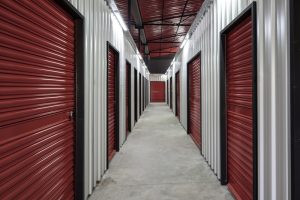Property damage caused by water or fire can create a serious setback for businesses and homeowners alike. These damages can have far-reaching consequences on structural integrity and pose critical health hazards. Therefore, it is essential to learn preventive measures to reduce the risk and mitigate potential damage.
Essential Preventive Measures for Water Damage
Water damage can range from minor leaks to serious flooding. Here are some preventive measures to help protect your property:
- Sump Pump Installation: Consider installing a reliable sump pump with battery backup in the basement or any lower levels to efficiently remove water and prevent flooding during heavy rainfall or plumbing mishaps.
- Landscape Management: Implement comprehensive landscaping strategies, such as creating swales, berms, or French drains, to direct water away from the property’s foundation. Strategic planting of water-absorbing vegetation can also help manage excess water and prevent soil erosion.
- Roof Maintenance: Conduct regular roof inspections to identify and address any missing or damaged shingles, cracked flashing, or clogged gutters that could lead to water leaks and subsequent damage to the property’s interior.
- Waterproofing Solutions: Consider applying waterproof sealants or coatings to the exterior walls and foundation of the property. Installing waterproof membranes or barriers during construction or renovation projects can provide an additional layer of protection against water intrusion.
- Regular Inspections: Conduct thorough inspections of the property, including plumbing fixtures, appliances, and water supply lines, to identify any signs of leaks, corrosion, or wear and tear. Promptly addressing these issues can prevent potential water damage and costly repairs in the future.
- Proper Ventilation and Dehumidification: Ensure that all areas prone to moisture, such as bathrooms, kitchens, and basements, have adequate ventilation and dehumidification systems. Proper airflow and moisture control can help prevent the growth of mold and mildew, which can lead to structural damage and health hazards.
- Emergency Preparedness: Develop a comprehensive emergency plan that includes the location of water shutoff valves, emergency contact information for plumbing professionals, and a protocol for responding to water-related emergencies promptly. Regularly review and update the emergency plan to ensure its effectiveness in mitigating potential water damage risks.
In situations where preventive measures are not enough, water damage restoration in Ridgefield companies step in to provide professional, efficient restoration services.
Preventive Measures for Fire Damage
Fire can cause devastating damage, from destroying property to posing serious safety risks. Here are some preventive fire safety measures:
- Fire Escape Plan: Developing a comprehensive fire escape plan is essential for ensuring the safety of all occupants in the event of a fire. Regularly practicing the plan helps everyone become familiar with escape routes, ensuring a swift and organized evacuation. Designating a safe meeting point outside the property allows for easy headcounts and ensures that everyone has safely evacuated.
- Fireproof Materials: Fire-resistant building materials and furnishings can significantly reduce fire spread and limit property damage. Opt for fire-rated glass, doors, roofing materials, and other fireproof materials to enhance the overall fire safety of the property.
- Heating System Maintenance: Schedule regular inspections and maintenance for heating systems, furnaces, and chimneys to ensure they are in good working condition. Clear any debris or obstructions from heating vents and flues to prevent the buildup of combustible materials.
- Cooking Safety: Exercise caution in the kitchen by practicing safe cooking habits, such as never leaving cooking unattended, keeping flammable objects away from heat sources, and using appliances for their intended purpose.
- Storage Safety: Store flammable materials, such as gasoline, paints, and cleaning solvents, in designated, well-ventilated areas away from potential ignition sources. Use appropriate storage containers and ensure these materials are stored in compliance with local fire safety regulations.
- Regular Inspections: Conduct inspections of fire safety equipment, such as fire alarms, sprinkler systems, and emergency lighting, to ensure they are operational and comply with fire safety standards. Schedule professional inspections and maintenance to keep the systems in optimal working condition.
- Educate Occupants: Provide fire safety training and education for all property occupants, including instructions on how to use fire extinguishers, the importance of early detection, and the appropriate actions to take in the event of a fire emergency.
When a fire has caused damage despite these precautions, professionals like those who provide fire damage restoration services in Wilton, CT, are equipped to restore the property and make it habitable again.
Understanding Biohazard Cleanup
Biohazard cleanup involves cleaning, sanitizing, and deodorizing areas where a traumatic event such as a crime, death, accident, or contamination has occurred. Professionals handling biohazard cleanup are trained to handle these situations discreetly, and understanding when professional help is needed is crucial.
Conclusion
Preventing water and fire damage is essential for the safety, function, and longevity of any property. By following these preventive measures, one can significantly reduce the chances of encountering such damage. However, should these calamities occur, professionals in water damage restoration, fire damage restoration, and biohazard cleanup are trained and equipped to restore your property to its previous condition.








